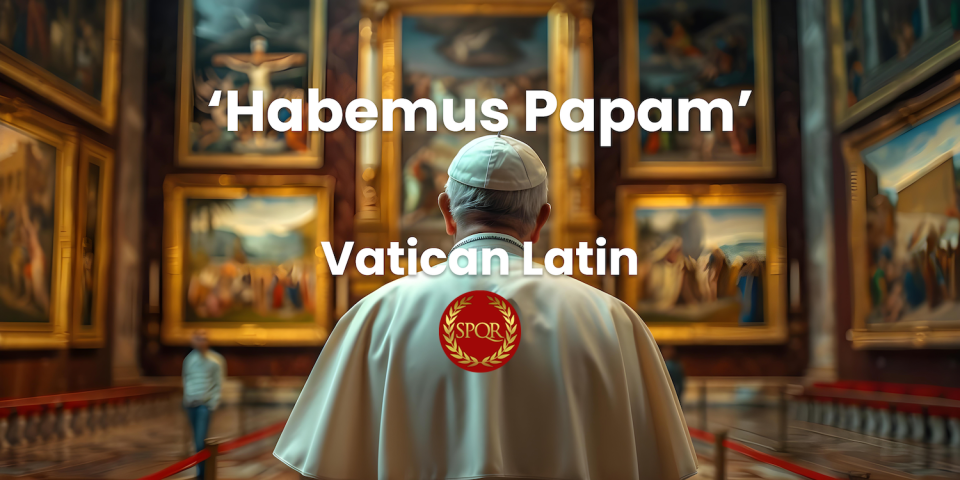How to Say ‘Happy 4th of July’ in Different Languages
Our 4th of July gift to you: Happy Independence Day in 33 languages. Share the love!
Latin’s not dead. It’s just living its best life in the Vatican.

As the world’s smallest independent state (you could walk across it in about 20 minutes), the Vatican might seem like an unlikely language preserver, but it’s actually keeping Latin kickin’ in its daily operations. Let’s dig into how this ancient language continues to thrive behind those famous walls.
Even if you dozed through Latin class, chances are you’ve heard some of these phrases that still echo through St. Peter’s Square and beyond:
When most of us think about Latin, we picture toga-wearing Romans, bearded philosophers, or maybe that class we struggled through in high school. But in Vatican City, Latin isn’t just studied, it’s used. Like, actually used.
Latin remains the official language of the Holy See, the universal government of the Catholic Church. While Italian serves as the everyday working language and English has become increasingly important for international communications, Latin holds a special status that goes way beyond mere tradition.
The Vatican’s ATMs even offer Latin as a language option! If you’re withdrawing cash in St. Peter’s Square, you might see “Inserito scidulam quaeso ut faciundam cognoscas rationem” instead of “Please insert card.” Talk about a flex on your banking app.
But why keep a supposedly “dead” language alive? According to Vatican historian Professor Antonio Garrigues, “Latin provides continuity across centuries of Church teaching. When a document is written in Latin, its meaning remains stable across cultures and time periods, which is crucial for theological precision.”
The Vatican’s Latin Foundation (Latinitas Foundation) works specifically to preserve and promote Latin usage. They publish dictionaries that create new Latin words for modern concepts, like “interrete” for internet and “telephonium gestabile” for mobile phone. Imagine texting your friends in Latin!
Latin provides unchanging precision for Church documents across centuries, unlike evolving modern languages. It also serves as a neutral international language for the global Catholic community, avoiding preference for any regional tongue. As Cardinal Burke said, "When we pray in Latin, we connect directly to centuries of Catholic heritage."
Only about 20-30 Vatican officials can converse comfortably in Latin. Most staff use Italian daily, with Latin reserved for official documents and ceremonies. The Pope and high-ranking clergy have working knowledge, though fluency varies. Pope Benedict XVI could improvise Latin speeches, while Pope Francis prefers Spanish and Italian but maintains Latin competency for official functions.
Latin reveals the roots of key political concepts like "republic" (res publica) and "senate" (senatus). For religion, it provides direct access to foundational texts from the Vulgate Bible to theological works. Latin sharpens precision in thinking and expression, as Pope Francis noted. Even basic Latin knowledge connects you to Western cultural traditions and helps you appreciate the ancient language still alive in modern contexts.
The Latin language is no longer a secret code meant only for scholars or the Vatican. Starting right now, you can learn Latin with Mondly using bite-sized lessons and practical topics to help you discover how Romans conversed in their day-to-day life.
Soon enough, you’ll be able to speak like a veritable Vatican insider yourself.
Start using Mondly for free on your computer or download the app and learn Latin fast anytime, anywhere.

Our 4th of July gift to you: Happy Independence Day in 33 languages. Share the love!

The Japanese alphabet: 3 writing systems working together flawlessly. 🧎

The key is to be consistent and study Polish every day.